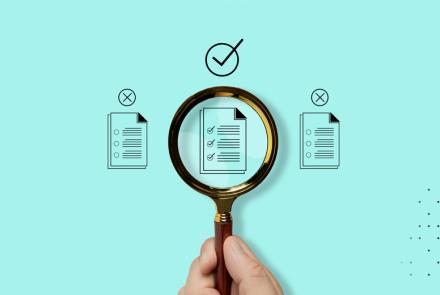How to prepare for the GPhC Registration Assessment
The GPhC registration assessment is unlike any other exam you will have sat before and may even be the most important exam you will ever do. The GPhC will be assessing the knowledge you have acquired from your pre-registration year and your pharmacy degree to determine if it is good enough for you to become a registered pharmacist.
The GPhC state that the registration assessment is there for you to ‘demonstrate that you understand how to apply knowledge appropriately and in a timely way…’ rather than factual recall. With so much information out there, it is crucial that pre-reg trainees use the time they have to prepare for the assessment wisely. The information that follows helps you to do that. 
RAF is your friend!
The GPhC Registration Assessment Framework (RAF) explains in detail what areas you will be assessed on and gives weightings for each topic so you have an idea how many questions you will be asked. Print off the RAF and use it to plan your study. If you’re not sure what a particular section means or where to look, be sure to ask for help. Remember, you need to know much more than what’s in the BNF and MEP!
What’s your study style?
 Are you a ‘Happy Highlighter’ who works their way through the BNF, colouring in all the important bits? Or maybe you are a ‘Diagram Demon’ who likes to create colourful creations to help you learn. Whatever your style, have you ever stopped to think how helpful your study techniques are?
Are you a ‘Happy Highlighter’ who works their way through the BNF, colouring in all the important bits? Or maybe you are a ‘Diagram Demon’ who likes to create colourful creations to help you learn. Whatever your style, have you ever stopped to think how helpful your study techniques are?  Highlighting, reading, drawing diagrams and watching videos are all examples of passive learning’. If you simply read, watch or re-write information, you’re likely to retain only a small fraction of the information you’re working with. Techniques that encourage ‘active learning’ on the other hand are likely to be much more useful because they require you to think, understand and explain what you’ve just learnt. Self-testing yourself regularly is one of the most effective ways to get on to retain knowledge although working with friends and testing each other can be equally useful.
Highlighting, reading, drawing diagrams and watching videos are all examples of passive learning’. If you simply read, watch or re-write information, you’re likely to retain only a small fraction of the information you’re working with. Techniques that encourage ‘active learning’ on the other hand are likely to be much more useful because they require you to think, understand and explain what you’ve just learnt. Self-testing yourself regularly is one of the most effective ways to get on to retain knowledge although working with friends and testing each other can be equally useful.
Don’t be a last-minute crammer…
 We all know the sort of person that does minimal work for an exam, stays up all night and manages to scrape through. If this is you, think again! The GPhC assessment is different to other exams you will have taken – you will need to think on your feet and you will need to be fresh. Sleep therefore should be your priority the night before the exam. Research shows that even if you learned something just one day ago, by the time it comes to the exam you will only retain about a third of that information. After learning something new, plan time to go over your learning again soon afterwards.
We all know the sort of person that does minimal work for an exam, stays up all night and manages to scrape through. If this is you, think again! The GPhC assessment is different to other exams you will have taken – you will need to think on your feet and you will need to be fresh. Sleep therefore should be your priority the night before the exam. Research shows that even if you learned something just one day ago, by the time it comes to the exam you will only retain about a third of that information. After learning something new, plan time to go over your learning again soon afterwards. 
Flip out your Flashcards!
When you’re on the bus or train with a few minutes to spare, resist Instagram or the latest video on YouTube and flip out your flashcards. Whether you use real cards or an app such as Anki, flashcards are THE way to keep your knowledge levels regularly topped up.
Quality Questions
Other than a few ‘real’ questions on the GPhC website, you’ll come across a vast array of practice questions, mock exams and videos aimed at pre-reg’s. Not all training materials are the same however and old, out-dated questions can do you more harm than good. Mocks and practice questions are invaluable at helping to test and identify gaps in your knowledge but what you do afterwards is what matters most.  Don’t simply try to remember ‘right’ and ‘wrong’ answers - after all you’re highly unlikely to ever see the exact same question again. Instead work out where to go to acquire the knowledge that would have helped you to answer the question correctly in the first place. Also avoid going over the same questions again and again because you risk ‘remembering’ the correct answer rather than understanding why it is correct.
Don’t simply try to remember ‘right’ and ‘wrong’ answers - after all you’re highly unlikely to ever see the exact same question again. Instead work out where to go to acquire the knowledge that would have helped you to answer the question correctly in the first place. Also avoid going over the same questions again and again because you risk ‘remembering’ the correct answer rather than understanding why it is correct.
Don’t be a parrot (ask yourself ‘why?’)
Let’s face it – revision can be boring. You may have groaned at the thought of learning lists of enzyme inducers at university or verb tables for French GCSE, but you’re almost a pharmacist now so it doesn’t have to be that way! Rather than remembering facts, turn your study into an enquiry and get used to asking ‘why?’ For example, you could try to remember that the beta blocker propranolol is more likely to cause nightmares than atenolol but asking yourself why that is so* is far more engaging than trying to learn something ‘parrot-fashion’.
Categorise!
Whether it’s drugs that cause hyponatraemia or QT prolongation, recent tables added to the BNF are a huge help to pre-reg trainees. Learning lists of drugs is no fun however and likely to be less helpful than categorising them into easy to understand groups.  For example, take ‘Drugs that cause Thromboembolism’ – you could try to remember a list of almost 30 drugs or you could ask why do these drugs cause thromboembolism and categorise them accordingly. You’ll then see that they can be grouped into those that can cause thromboembolism because of vascular toxicity (chemotherapeutic drugs), because of oestrogenic effects (e.g. tibolone), because they prevent clot breakdown (tranexamic acid) or because they increase the number of circulating erythrocytes (epoetin).
For example, take ‘Drugs that cause Thromboembolism’ – you could try to remember a list of almost 30 drugs or you could ask why do these drugs cause thromboembolism and categorise them accordingly. You’ll then see that they can be grouped into those that can cause thromboembolism because of vascular toxicity (chemotherapeutic drugs), because of oestrogenic effects (e.g. tibolone), because they prevent clot breakdown (tranexamic acid) or because they increase the number of circulating erythrocytes (epoetin). 
Back to basics
If you’re faced with a question where the answer isn’t immediately obvious, don’t panic but instead go ‘back to basics’ and consider what you do know about that subject. Whether it’s medicines law or methotrexate, drawing on what you know is correct can help you eliminate incorrect answers.
Plan, plan, plan
A pilot wouldn’t try to fly a plane to a new destination without working out the route and pre-reg’s need to carefully map out what they have to cover in the time they have. Every year there are a few surprises in the GPhC exam for many trainees but a quick scour of the RAF and they soon identify which section they overlooked. Be thorough and like a pilot, check your course regularly and make regular readjustments as needed. Good luck. * Atenolol is water soluble (unlike propranolol which is lipid soluble) so is less likely to pass through the blood brain barrier so central side effects including nightmares and sleep disturbance are less likely.







